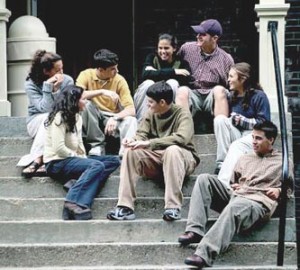 Recently I’ve spent a good bit of time with the Students of our church. In the absence of a staff person to give attention to them, many volunteers have stepped up and I have had the privilege of teaching them on a somewhat regular basis. As a result, and in anticipation of a sermon series on the family, I have not only spent a great deal of time with students, but researching students and the current culture surrounding them.
Recently I’ve spent a good bit of time with the Students of our church. In the absence of a staff person to give attention to them, many volunteers have stepped up and I have had the privilege of teaching them on a somewhat regular basis. As a result, and in anticipation of a sermon series on the family, I have not only spent a great deal of time with students, but researching students and the current culture surrounding them.
Christian Smith’s work, Soul Searching, is a must read for anyone interested in impacting the up-and-coming generation. Many scholars, pastors, theologians, and culture watchers have picked up on Smith’s identification of Moralistic, Therapeutic Deism as the prevailing religion for many “evangelical” teens in America. However, underlying much of his findings and along with my experience in student ministry for more than ten years, one thing that I have grown to know is that teenagers can (and must) be able to live as Christians and clearly articulate their religious beliefs.
I was struck in Smith’s book by the definition of Christianity given by a 16 year old that he interviewed.
I believe that Jesus is God’s Son and that he came and he died for me and for everyone else because we’re all sinners and that he didn’t stay dead but he rose again and he wants us to come live with him and we just need to admit that we’re sinners and believe that he came and died on the cross and rose again and just choose to follow him.
Of God, this same girl says,
He’s a father, like I learned, even though you may not have a dad, he’s still a father, he disciplines like a father, he’s a good friend, he’s a provider, he cares. He is a merciful God, but he is also just.”
It may very well be true that this girl is in the minority, but it may also be true that she is in the minority of students simply because we have not done a good job challenging students and teaching them basic truths of God’s word. Regardless, one thing is certain, teenagers can be mature in their faith. Sixteen year-olds become pop-icons, compete in the Olympics, and sail around the world. Our students can live their faith radically, we must call them up. Challenge them to do hard things, they may surprise us all by taking the challenge and shattering our expectations.

